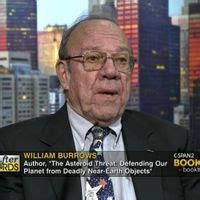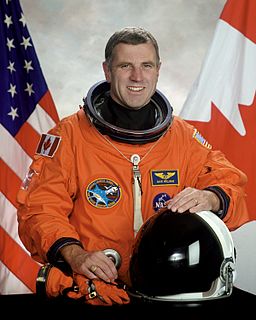A Quote by Walter Lang
Scripture suggests that the elements in space were created for the benefit of earth, while evolution suggests that earth is an insignificant speck in vast space.
Related Quotes
In this model, the sun is a very tiny speck of dust indeed-a speck less than a three-thousandth of an inch in diameter ... Think of the sun as something less than a speck of dust in a vast city, of the earth as less than a millionth part of such a speck of dust, and we have perhaps as vivid a picture as the mind can really grasp of the relation of our home in space to the rest of the universe.
Many people may not recognize that the development of space exploration technologies has already helped benefit Earth in many ways, especially when it comes to communications, Earth observation and even fostering economic growth. Space technologies are surprisingly critical in impacting government, industry and personal daily decision-making.
The question to ask is whether the risk of traveling to space is worth the benefit. The answer is an unequivocal yes, but not only for the reasons that are usually touted by the space community: the need to explore, the scientific return, and the possibility of commercial profit. The most compelling reason, a very long-term one, is the necessity of using space to protect Earth and guarantee the survival of humanity.
Going into orbit around Earth - where the space station is today, and where the space shuttles and John Glenn and all those folks go-that's three-eighths of an inch above a schoolroom globe, just FYI. That's not very far from Earth. Yes, you are off Earth, but you're not really going anywhere yet. The moon was the only real destination.
The frontier in space, embodied in the space colony, is one in which the interactions between humans and their environment is so much more sensitive and interactive and less tolerant of irresponsibility than it is on the whole surface of the Earth. We are going to learn how to relate to the Earth and our own natural environment here by looking seriously at space colony ecologies.
On my second space walk, I was riding the Canadarm, heading down toward the payload bay of the space shuttle, and I could see the space shuttle highlighted against the Earth in the background, and there was this black, infinite, hostile void of space. I remember looking down at the Earth and thinking, "Beneath me is a 4½-billion-year-old planet, upon which the entire history of the human species has taken place." That was an incredibly humbling moment, and I had a bit of an epiphany.






































